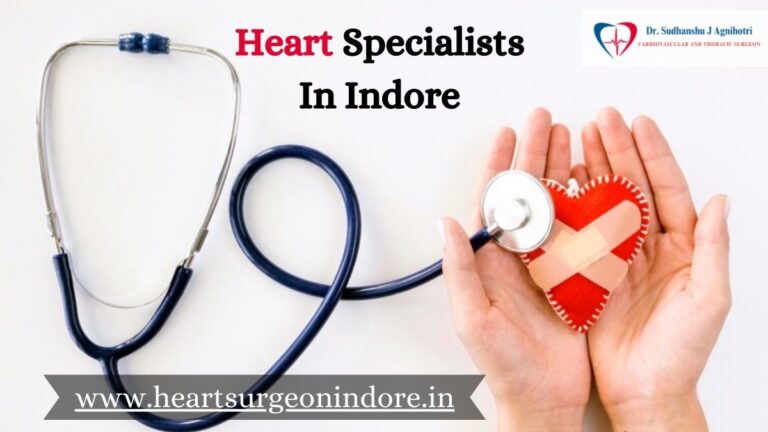Ghee Is Good or Bad for Heart?
Have you heard the latest buzz about Ghee Is Good or Bad for Heart? This golden medicine has been used for centuries in Indian cooking and Ayurvedic medicine. While ghee is just clarified butter, slowly heating and straining cow’s milk butter produces a product packed with flavour and nutritional benefits. Though ghee is high in saturated fat, it includes beneficial fats such as conjugated linoleic acid that may boost fat burning and muscle gain.
Ghee also has a high smoke point, so it’s great for high-heat cooking methods like frying and sautéing. If you’re on the barrier about adding ghee to your diet due to its fat content, you may be surprised by the latest research showing that ghee in moderation may be suitable for your heart.
Table of Contents
What Is Ghee?
Ghee is a clarified butter famous in Indian and Middle Eastern cooking. To make ghee, butter is gently cooked until the solid milk components separate and sink to the bottom. The golden liquid left on top is the ghee.
Because ghee is cooked at a low temperature, it retains more nutrients than regular clarified butter. Ghee is rich in fat-soluble vitamins A, D, E and K2. It also contains butyric acid, a short-chain fatty acid that acts as an anti-inflammatory in the body and provides energy for cells in the colon.
For years, ghee has been used in Ayurvedic medicine. Some studies show that ghee may help enhance digestion, reduce inflammation, and strengthen the immune system. The medium-chain fatty acids in ghee are easily digestible and help promote weight loss.
However, ghee is high in saturated fat, so consume it in moderation. For the average person, 1-2 tablespoons daily is a good guideline. Ghee can be used as a butter or olive oil substitute. Try spreading it on toast, using it to boil veggies, or adding it to rice, dal and curries for extra flavour.
When stored properly in an airtight container, ghee can last for several months at room temperature and up to a year in the refrigerator. Homemade ghee will last up to 3 months. Look for organic, grass-fed ghee for the most nutritional benefits.
Nutritional Profile of Ghee
Regarding your heart health, ghee can be part of a balanced diet. This rich, nutty-flavoured fat contains nutrients that may help support cardiovascular wellness.
For starters, ghee is a source of fat-soluble vitamins A, D, E and K2. Vitamin K2 mainly, helps direct calcium into your bones and teeth rather than your arteries. Ghee also contains conjugated linoleic acid, an antioxidant that may help lower inflammation and improve heart health.
Additionally, ghee contains medium-chain triglycerides, a type of saturated fat that may raise good HDL cholesterol. HDL cholesterol acts like a janitor in your blood vessels, helping to clear out excess cholesterol and plaque. More HDL means cleaner arteries and a lower heart disease risk.
Of course, ghee is still high in saturated fat and calories, so consume in moderation – no more than 1-2 tablespoons per day. As part of a balanced diet and exercise regimen, adding ghee can be part of a heart-healthy lifestyle. But skip it altogether if you have high cholesterol or heart disease, and check with Cardiac Surgeon in Indore first.
When enjoyed responsibly, golden ghee may help your heart glow with good health for years. But the key is moderation – like many fats, ghee should be used as a flavouring and in small amounts.
Making Your Ghee at Home
Making your ghee at home is pretty straightforward. You only need some high-quality, grass-fed butter, a saucepan, and a fine-mesh strainer.
Ingredients
- 1 pound of unsalted butter (preferably from grass-fed cows)
Instructions
- Place the butter in a saucepan over low heat. The butter will separate into milk solids and golden liquid fat as it melts.
- Gently simmer the butter for about 20 minutes, stirring frequently, until the milk solids at the bottom turn light brown. Be careful not to burn the solids.
- Remove from heat and let cool for about 10 minutes. Then, set a fine-mesh strainer over a glass container. Pour the melted butter through the filter to separate the milk solids.
- Discard the milk solids. Let the strained ghee cool to room temperature, then cover and refrigerate. It will last for several months.
Ghee made this way is creamy and aromatic, with hints of nutty caramel. Use it as a substitute for butter in cooking or to add richness to rice, dals, and vegetables. Homemade ghee is a simple way to add flavour to your Indian-inspired dishes. Give this recipe a try—your taste buds will thank you!
Ghee vs. Butter
Ghee and butter are derived from cow’s milk, but ghee is clarified butter with all milk solids removed. This process gives ghee some advantages over regular butter.
Nutrition
Ghee contains saturated fat, but it is lactose-free and casein-free. The clarification process removes the milk solids that contain these compounds. Some studies show that ghee may benefit heart health when consumed in moderation, unlike butter. Ghee is also rich in fat-soluble vitamins A, D, E and K.
Still, ghee and butter are high in saturated fat and should be eaten sparingly. The American Heart Association recommends limiting saturated fat intake to 5-6% of total calories daily. For most people, that works out to 11-13 grams daily. One tablespoon of ghee contains about 9 grams of saturated fat, so use it judiciously!
Cooking Properties
Ghee has a high smoke point, so it works well for high-heat cooking methods like frying and sautéing. It adds richness and flavour to dishes without burning. Ghee also has a longer shelf life than butter. When stored properly in an airtight container, ghee can last for several months at room temperature and up to a year in the refrigerator.
Health Benefits of Ghee
Ghee offers several health benefits when consumed in moderation.
Heart health
Ghee contains conjugated linoleic acid (CLA), a fat that may help lower heart disease risk factors like high blood pressure and atherosclerosis (plaque buildup in arteries). Ghee also contains omega-3 fatty acids, which can help reduce inflammation and promote heart health.
Digestion
Ghee has a high amount of butyric acid, a short-chain fatty acid that can soothe digestion and reduce inflammation in the gut. Ghee may help relieve constipation and improve nutrient absorption. The milk solids in ghee contain lactobacilli, beneficial bacteria supporting gut health and digestion.
Anti-ageing
Ghee is rich in antioxidants like vitamin E that can help fight free radical damage. Ghee also contains vitamin K2, which helps calcium absorption and bone health. Ghee may help slow ageing and age-related mental decline by reducing inflammation and providing nutrients.
Cooking Benefits
Ghee has a high smoke point, suitable for high-heat cooking methods like stir-frying without burning. Ghee adds richness and flavour to foods. It can be used as a butter substitute and is lactose-free and casein-free, so that it may suit those with dairy allergies.
Health Risks of Ghee
Ghee may not be the healthiest choice for your heart. While ghee contains nutrients like fat-soluble vitamins A, D, E and K2 and antioxidants, it is still high in saturated fat. Diets high in saturated fats can raise “bad” LDL cholesterol levels in the blood and increase the risk of heart disease.
Weight Gain
Consuming too much ghee may lead to weight gain and obesity. Ghee is high in calories, with about 135 calories and 14 grams of fat per tablespoon. Over time, a diet high in calories and fat from sources like ghee can cause weight gain if you don’t account for it and make adjustments to your diet or exercise routine. Losing excess pounds is one of the best things you can do for your heart health and overall wellness.
Trans Fats
Ghee also contains trans fats, although in small amounts. Some studies have connected trans fats, even in trace levels, to a higher risk of heart disease. It is advised by the American Heart Association to reduce trans fats as much as possible. While ghee likely only contains trace amounts of trans fats if appropriately made, it’s still something to be mindful of.
In moderation, ghee can be part of a healthy diet. However, use ghee sparingly and as an occasional substitute for more heart-healthy fats like olive or avocado for your heart and overall health. Focus on a balanced diet with many fresh fruits, vegetables, whole grains, legumes, and lean proteins. Maintaining a healthy weight and exercising regularly are also crucial. Your heart will thank you!
Ghee Is Good or Bad for Heart?
Ghee can be part of a healthy diet for your heart, but as with many foods, moderation is key. Ghee is high in saturated fat, so while a little bit is OK, overeating can raise cholesterol levels and increase heart disease risk over time.
- For most people, consuming 1-2 tablespoons of ghee per day is considered a safe and healthy amount. This provides nutritional benefits without excessive saturated fat.
- Ghee contains conjugated linoleic acid (CLA), which may help lower inflammation in the body and improve heart health. CLA is a beneficial fatty acid found in dairy fats like ghee.
- Ghee also contains fat-soluble vitamins A, D, E and K2, essential for various body functions, including bone and heart health.
However, ghee is not a miracle food. It is still high in saturated fat and calories, so you must account for it in your daily diet. Replacing unhealthy fats like trans fats with ghee may be beneficial, but ghee is not inherently heart-healthy.
For the most heart-healthy diet, focus on eating more whole foods like fruits and vegetables, lean proteins, and whole grains. Limit saturated fats from red meat and full-fat dairy, and avoid trans fats from processed snacks and baked goods.
FAQs
Ghee is quite popular, and you may question how it may impact your heart health. Here are some common FAQs:
Is Ghee Good or Bad for Your Heart?
Ghee in moderation can be part of a heart-healthy diet. While high in saturated fat, ghee contains medium-chain fatty acids that may help lower heart disease risk factors like high cholesterol. However, ghee is still high in calories, so consume it in moderation and as part of an overall balanced diet and exercise plan.
How Much Ghee Is OK to Eat Per Day?
Most nutrition experts recommend limiting ghee to no more than 1-2 tablespoons per day. This amounts to around 120-240 calories and 14-28 grams of fat, most of which is saturated fat. So, use ghee sparingly as a spread, in cooking, or as a topping.
Does Ghee Raise Cholesterol?
Ghee may have a negligible effect on raising cholesterol levels for some people due to its high saturated fat content. However, ghee also contains conjugated linoleic acid (CLA) and medium-chain triglycerides, two fatty acids that may help lower cholesterol or improve cholesterol ratios.
The effect of ghee on cholesterol varies from person to person based on individual genetics and lifestyle factors. The only way to know how it impacts you is to get a blood test before and after adding ghee to your diet.
Can I Have Ghee If I Have High Blood Pressure?
Ghee itself does not contain sodium, so it will not directly raise blood pressure. However, its high saturated fat content may pose risks for some people with high blood pressure. Check with Best Cardiac Surgeon in Indore, but as a general rule:
• Limit ghee to 1 tablespoon daily if you have high blood pressure.
• Choose a high-quality, organic ghee with no added salt.
• Maintain a balanced diet low in sodium, sugar and unhealthy fats.
• Exercise regularly, lose excess weight, and avoid smoking—all of which can help lower blood pressure.
Conclusion
So, in the end, should you add ghee to your diet? The research suggests that ghee can be part of a healthy diet in moderation. As with many things, moderation is key. Ghee is used sparingly as a substitute for less healthy fats, providing nutritional benefits and a delicious flavour.
However, there are better ways to go than drowning your food in ghee or consuming it with a spoonful, which will quickly negate any health perks. Use ghee instead of butter or oil when cooking, or add a teaspoon to your coffee or yoghurt for the best results. Your heart and taste buds will thank you.








